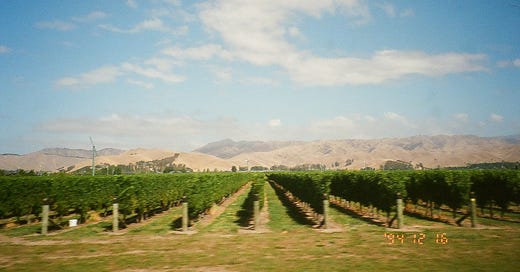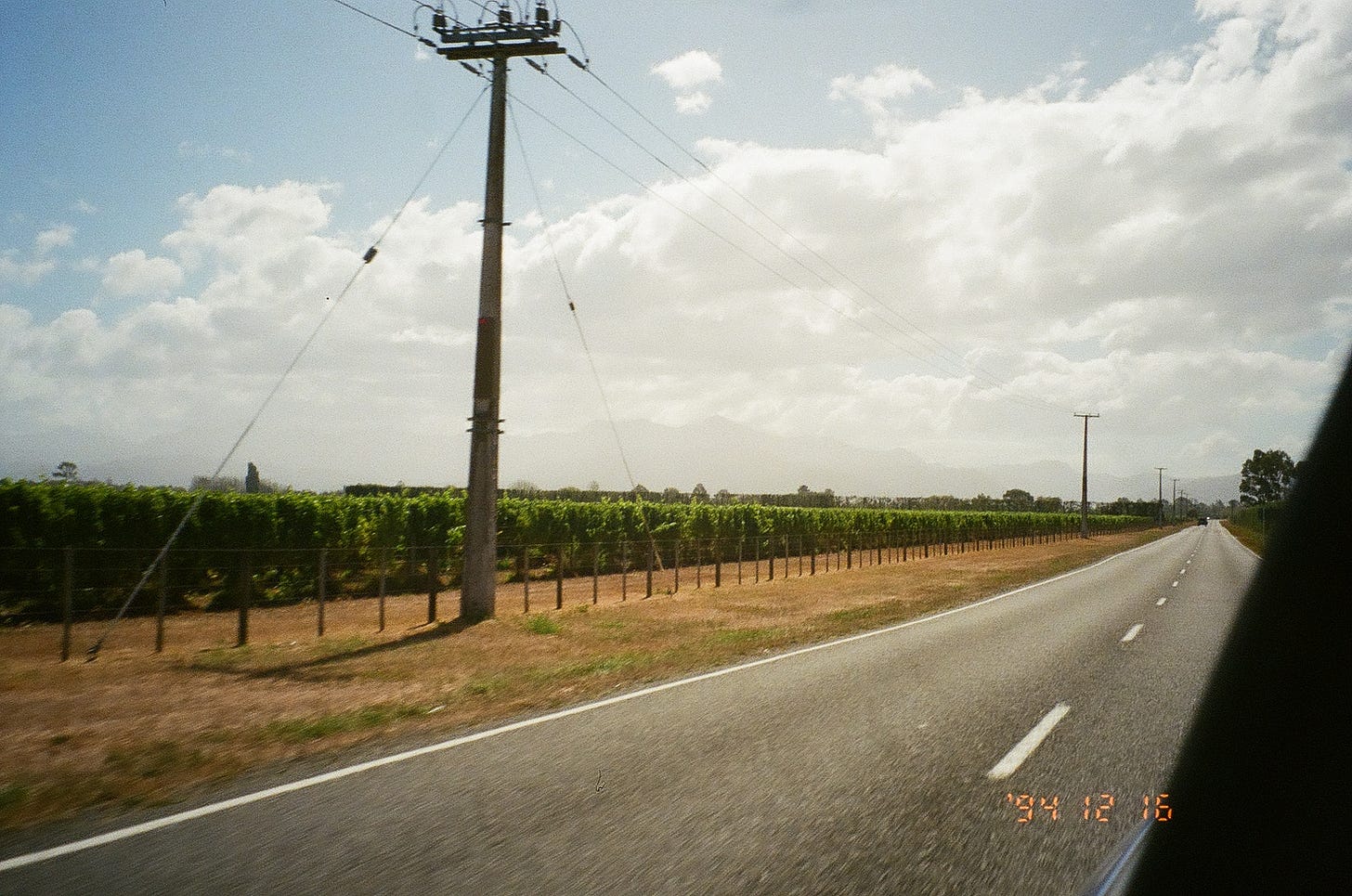What is Natural Wine?
Why do I seek it out when I travel? Why is it the only wine I drink at home? And why do I care so much about this subject anyway?
To put it quite simply, natural wine is fermented grapes.
You may be wondering isn’t all wine simply fermented grapes? Sadly it is not: there are over 60 additives legally allowed in conventional wine in the U.S. These additives range from harsh chemicals to sugar to products that change the color of the wine. (You can find the full list of legal wine additives here.) Because wine labels aren’t required to list ingredients, there can be any level of many different additives in one wine.
I don’t know about you, but I don’t want to be drinking unknown amounts of something called “Mega Purple” or any other chemical!
So I seek out winemakers who farm their grapes responsibly, often grow indigenous grapes, harvest with care, allow the wines to spontaneously ferment using native yeast, and produce wines without additives. That’s natural wine!
Natural wine is often (but not always) lighter and brighter than conventional heavy wines. It can taste a bit funky or a bit like barnyard but it can also taste very clean; it depends on the wine. It’s often young, un-oaked wines: think the opposite of a heavy, oaked Shiraz or Malbec. To oversimplify it: a lot of times natural wine tastes like really, really good grape juice that isn’t sweet. And no matter your taste in wines, there is probably a great natural option out there for you, from a light bubbly to a darker red!
Natural wine has been a trendy topic for a few years now, but it’s truly not anything new. It is what wine used to be before humans invented these additives and decided to start mass producing foods. It’s the way wine was made for hundreds of years: think the wine of Bible times or the way Georgia has always made wine in ancient amphora. Though it may feel trendy or new to us, natural wine is simply they way wine was always made for a very long time.
Why would modern conventional winemakers would want to add all of that stuff to their wines in the first place? Though there are many reasons, it often comes down to the mass production of large-scale wines. Big brands will add sugar, chemicals, and colors in order to produce the same product year after year. They’re going for a more homogenized product. Natural wine is alive; it’s made on a small scale; and it's often unpredictable. Without any additives, different vintages of the same wine often taste different. I think this is a beautiful byproduct of nature, but many commercial winemakers want to avoid these nuances.
I love seeking out natural wines from small, local producers when I travel, because they truly give you a sense of place. Due to the lack of intervention, the wine has a strong sense of terroir (or the natural environment in which it was produced). I find that these wines genuinely celebrate wherever I happen to be visiting, and they’re made with so much care by the people who live there. Plus, supporting small businesses is always a win!
So how do you make sure the wines your drinking are natural? That is a tricky question. The term “natural wine” is not regulated, meaning it cannot be put on wine labels to signify anything. In fact, there are several terms you’ll see in relation to natural wines: biodynamic, low-intervention, and organic being a few examples. Though these terms technically indicate different types of vinification, they’re helpful in your natural wine quest. Organic means the grapes were grown without using pesticides, but it doesn’t mean the winemaker didn’t add anything during fermentation or bottling. Biodynamic is a holistic, biodiverse approach to farming where winemakers are in tune with the moon and other external factors; biodynamic winemakers don’t use additives in their winemaking, so it’s a good term to look for. Low-intervention means the winemaker barely intervened with the grapes or the fermentation process; it is my favorite term to look for as this is exactly what I want in the wines I’m drinking.
The best way to make sure you’re drinking low-intervention wines is to do your research. Find a natural wine bottle shop near you who only sells low-intervention or natural wines. Learn which importers work with low-intervention winemakers. Read blogs or books about the subject. Once you know what to look for, it becomes easier and easier to discern.
The question “What is natural wine?” is not easy to answer. It’s a complex subject, and I have only provided the briefest of overviews in this post. If you’re interested in learning more, stay tuned for an upcoming post: I’m going to share some good resources for learning more about natural wine!
Until then, cheers!








